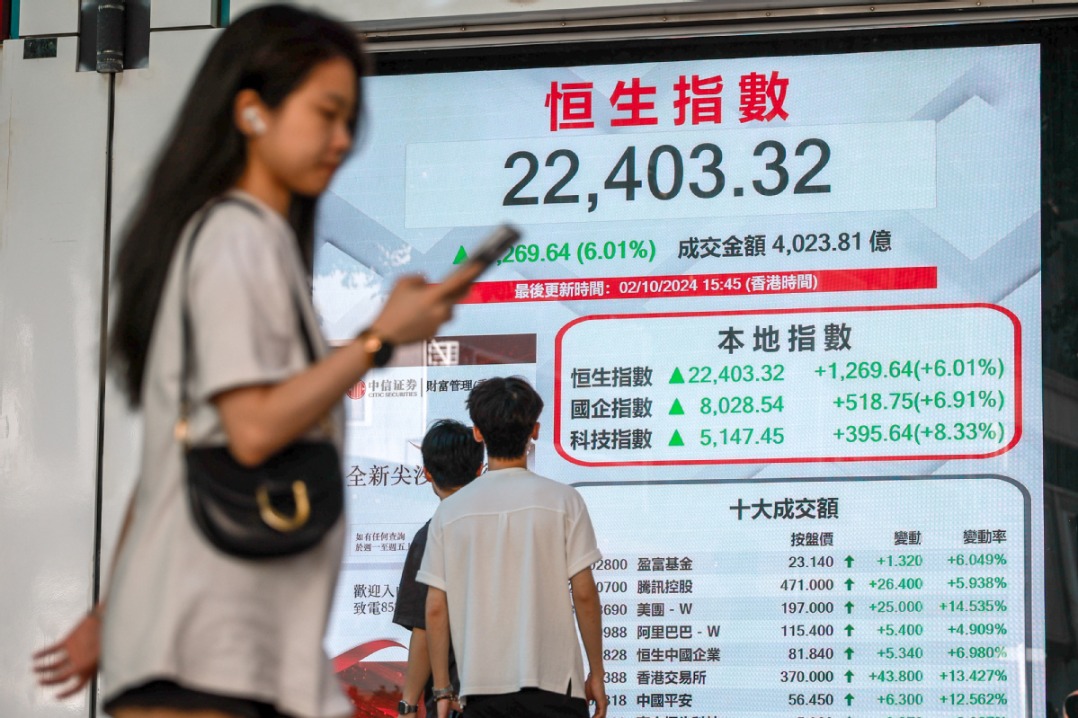'Silver economy' can be a driver of China's growth


China's demographic landscape is undergoing a pivotal shift, thanks to the negative population growth and rapidly rising aging population. According to official data, China's population at the end of 2023 was 1.41 billion, a decrease of 2.08 million from 2022. And the elderly population, those aged 60 or above, reached 297 million, with those aged 65 or above totaling 217 million.
Estimates by the United Nations and Chinese scholars suggest that China's elderly population will continue to grow over the next 30 years, peaking after 2054, with the number of people aged 60 or above crossing the 500 million mark and those aged 65 or above exceeding 400 million. These demographic shifts will have a huge impact on China's socioeconomic development.
On Jan 15, the State Council issued the "Opinions on Developing the Silver Economy to Enhance the Well-being of the Elderly" which is a comprehensive study of China's current demographic reality and future trends, and a crucial guide to future development. The document specifically reflects the spirit of the 19th and 20th National Congresses of the Communist Party of China, calling for proactively addressing the population aging problem.
The document defines the "silver economy" as an economy that provides products or services for the elderly. It covers a wide range of economic activities, from activities to meet the general needs of the elderly including food, clothing, housing, transportation and entertainment facilities to meet their requirements for healthcare and rehabilitation.
Given the substantial and growing demand of the elderly population, both in terms of quantity and quality, addressing these needs will require continuous innovations and substantial investments. The "silver economy" is an integral part of the modern industrial system. Hence, as the elderly population continues to increase, the "silver economy", due to its further development, will become an even more crucial component of the modern industrial system.
The State Council outlines 26 specific measures across four key areas to promote the development of the "silver economy". And huge investments and innovative means will be needed to meet the elderly people's general needs of, among other things, food, clothing, traveling and cultural and recreational activities, and cater to their specific demands of innovative elderly products, smart healthcare, anti-aging products and advanced medical apps and the like.
In order to promote innovations, the authorities will need the help of sectors such as modern agriculture, high-tech manufacturing, research and experimental services, biopharmaceuticals, high-end medical technologies, high-tech products and services, as well as modern financial and cultural tourism services.
Promoting the high-quality development of the "silver economy" requires not only the implementation of the 26 measures outlined in the document but also the adherence to the spirit of the 20th National Congress of the CPC, developing a new development pattern, advancing industrialization, constructing a modern industrial system, transforming China into a top-quality manufacturing powerhouse, an aerospace hub, and a global leader in transportation, data and financial services.
The establishment of a modern industrial system is necessary to provide support for developing technologies, making innovative products, improving high-quality healthcare service, delivering quality public services, addressing the population aging problem, and meeting both the general and specific material and spiritual needs of the elderly. Only through the establishment of a modern industrial system can the measures outlined in the document, including increasing product supply and improving quality, be realized.
To adapt to the changes caused by the rapidly aging population, the authorities have to focus on meeting both the general and specific needs of the elderly, and transform the "silver economy" into a driver of the national economy. Optimizing the development environment, increasing the innovation capability, ensuring unhindered supply of resources, cultivating talents, strengthening financial support, improving product and service quality, and combating fraudulent activities are all essential components of the document.
Furthermore, genuine market forces should be allowed to play a decisive role in resource allocation, with the government taking care of planning and supervision. By building a modern industrial system, China can effectively promote the high-quality development of the "silver economy" and improve the well-being of the aging population.
The views don't necessarily reflect those of China Daily.
The author is a professor of demography at Hebei University.
If you have a specific expertise, or would like to share your thought about our stories, then send us your writings at opinion@chinadaily.com.cn, and comment@chinadaily.com.cn.
































